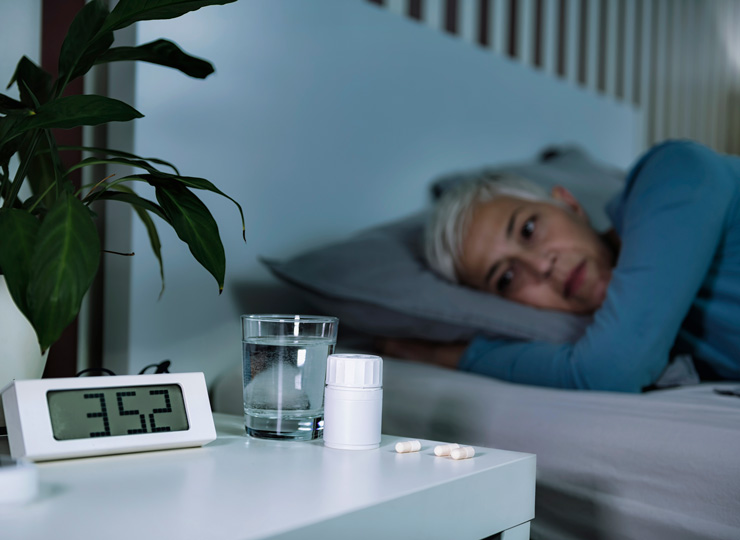
May 6, 2020
More and more of us are becoming anxious and stressed because of the coronavirus pandemic. And an increasing number are turning to sleeping pills and anti-anxiety drugs to combat insomnia and stress. But while such medications may provide short-term relief, they can cause serious problems long-term, including an increased risk of Alzheimer’s disease and other forms dementia, a new study reports.
Researchers in Taiwan report that regular use of benzodiazepines, which ease anxiety, and the so-called z-hypnotics, used to treat insomnia, may increase the risk of developing dementia. Commonly prescribed benzodiazepines include alprazolam (Xanax), clonazepam (Klonopin), chlordiazepoxide (Librium), diazepam (Valium) and lorazepam (Ativan). Z-hypnotics commonly prescribed to treat insomnia include zolpidem (Ambien, Intermezzo), zaleplon (Sonata) eszopiclone (Lunesta) and zopiclone (Imovane). The findings were published in the journal Neurotherapeutics.
For the study, the researchers looked at 260,502 men and women aged 65 years or older in Taiwan’s National Health Insurance Research Database. All had been prescribed benzodiazepine or z-hypnotic pills between 2003 and 2012.
Compared with their peers who did not take these drugs, those who used them for at least a month each quarter of the year had an increased risk of developing Alzheimer’s disease or other forms of dementia. The risk was especially high —five times higher than those not using any of the drugs — in those who were taking a mix of drugs of each type.
The researchers note that they did not consider other factors that may increase Alzheimer’s risk, including smoking, heavy drinking, few years of formal education and family history of Alzheimer’s. Still, the study included a large cross section of the population, an indicator that the trends toward increased risk are significant.
These anxiety-fighting and insomnia medications carry other risks as well. They may lose their effectiveness over time and cause dependency, so people may take higher and higher doses, increasing their risk of fatal overdose. The risk of overdose can be particularly high if people are also drinking alcohol.
In addition, they may cause sleepiness and increase the risk of falls, a leading cause of broken hips and loss of mobility, particularly in older patients. Falling can be especially problematic in anyone who may be caring for a loved one with Alzheimer’s disease. The drugs can also interact with a wide range of prescription and over-the-counter drugs, further compounding adverse side effects.
Scientists aren’t sure why these drugs may be related to an increased risk of dementia. But they urge caution on their use, especially over the long term.
Non-drug treatments for poor sleep should be used whenever possible. Such measures include limiting the ingestion of coffee and other caffeinated beverages in the late afternoon and evening, regular exercise (but not too close to bedtime), going to bed at the same time each night and maintaining a regular sleep schedule, and avoiding the use of computers and screens close to bedtime.
By ALZinfo.org, The Alzheimer’s Information Site. Reviewed by Marc Flajolet, Ph.D., Fisher Center for Alzheimer’s Research Foundation at The Rockefeller University.
Source: DeKosky, S.T., Williamson, J.B. The Long and the Short of Benzodiazepines and Sleep Medications: Short-Term Benefits, Long-Term Harms?. Neurotherapeutics Vol. 17, 153–155 (2020).











